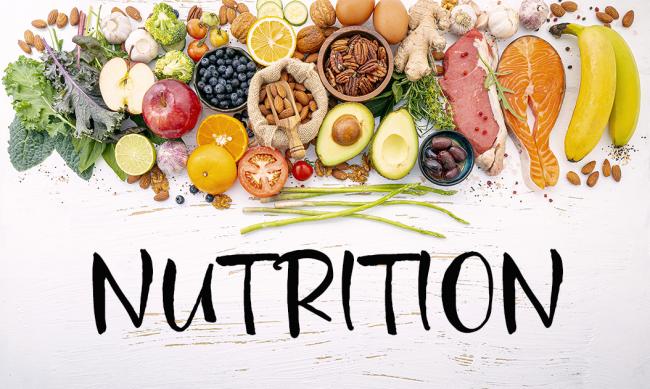Proper nutrition is essential for the growth and development of children. From infancy through adolescence, the food children eat plays a significant role in supporting their physical growth, cognitive development, and overall well-being. Establishing healthy eating habits early on not only helps kids thrive today but also sets the foundation for a lifetime of healthy habits. Here’s a guide to understanding the nutritional needs of growing kids and tips on how to cultivate healthy eating habits.
The Basics of Child Nutrition
Children’s bodies require a variety of nutrients to support their rapid growth and energy needs. These include carbohydrates, proteins, fats, vitamins, minerals, and water. Each nutrient plays a specific role in a child’s development:
- Carbohydrates are the body’s primary source of energy. They fuel brain function, physical activity, and other vital processes. Whole grains, fruits, and vegetables are excellent sources of healthy carbohydrates.
- Proteins are essential for building and repairing muscles and tissues. They also support immune function. Lean meats, poultry, fish, beans, eggs, and dairy products provide quality protein.
- Healthy fats are crucial for brain development, hormone regulation, and cell structure. Sources of good fats include avocados, nuts, seeds, olive oil, and fatty fish like salmon.
- Vitamins and minerals support a range of functions, including bone health, immune function, and energy production. Calcium, iron, vitamin A, and vitamin C are particularly important during childhood.
- Water keeps the body hydrated and supports all bodily functions, from digestion to circulation. Ensuring children drink enough water is key to maintaining their health.
The Importance of a Balanced Diet
A balanced diet is one that includes a variety of foods from all food groups in the right proportions. This ensures that children get all the nutrients they need for healthy growth. A well-rounded diet should contain:
- Fruits and Vegetables: Aim to fill half of a child’s plate with fruits and vegetables. These foods are rich in essential vitamins, minerals, fiber, and antioxidants that support growth, immune function, and overall health.
- Whole Grains: Choose whole grains like brown rice, whole wheat bread, oatmeal, and quinoa over refined grains. Whole grains are higher in fiber and essential nutrients.
- Lean Proteins: Incorporate sources of lean protein such as chicken, fish, beans, and tofu. Protein helps in the development of muscles and tissues, and it is vital for the body’s growth and repair processes.
- Dairy or Dairy Alternatives: Dairy products such as milk, yogurt, and cheese are excellent sources of calcium and vitamin D, which are essential for strong bones and teeth. For lactose-intolerant children, fortified plant-based milk like almond or soy milk is a good alternative.
- Healthy Fats: Include sources of healthy fats such as nuts, seeds, and olive oil in your child’s diet. These fats help in brain development and are important for growth.
Portion Control and Meal Timing
While eating a balanced diet is crucial, it is equally important to pay attention to portion sizes and meal timing. Children have smaller stomachs and may need to eat more frequently than adults. Offering three balanced meals a day along with healthy snacks can keep a child energized and satisfied.
For younger children, portion sizes should be smaller but nutritionally dense, ensuring they receive enough calories and nutrients without over-consuming. As children grow, their portion sizes will increase to match their energy needs. Encourage children to listen to their bodies, eat when they’re hungry, and stop when they feel full.
Tips for Fostering Healthy Eating Habits
- Set a Good Example: Children often model their eating habits after those of their parents. By prioritizing healthy eating, you show your child the importance of a nutritious diet. Include a variety of healthy foods on your plate and avoid restrictive eating patterns.
- Involve Children in Meal Prep: Letting kids help with meal planning and preparation not only makes them more likely to try new foods but also teaches them about nutrition. They might enjoy assembling their own snacks or picking out fruits and vegetables at the store.
- Offer a Variety of Foods: Children can be picky eaters, but offering a variety of flavors and textures at each meal increases the chances they’ll develop a liking for different foods. Be patient and continue to introduce new foods in different ways.
- Avoid Sugary Beverages: Limit sugary drinks like soda and fruit juices, which can lead to weight gain and poor dental health. Encourage water or milk as primary beverages.
- Healthy Snacks: Choose healthy snacks like fruits, vegetables, yogurt, and whole-grain crackers rather than processed snacks high in sugar and salt. Healthy snacks provide essential nutrients and help keep children satisfied between meals.
Nutrition and Growth Phases
As children grow, their nutritional needs change. For instance, toddlers and preschoolers need smaller portions but require frequent, nutrient-dense meals. As children enter school age and adolescence, their bodies undergo growth spurts and increased energy demands. During these phases, it’s especially important to ensure they get enough protein, iron (for muscle development), and calcium (for bone growth).
Teenagers, in particular, may be prone to poor dietary habits as they become more independent. It’s important to teach them the value of balanced meals and encourage them to make healthy choices. If needed, consult with a pediatrician or dietitian to address any specific nutritional concerns during this stage.
Conclusion
Healthy eating habits are essential for the optimal growth and development of children. By offering a balanced diet rich in fruits, vegetables, whole grains, lean proteins, and healthy fats, parents can help their children develop strong bodies, sharp minds, and healthy habits. With the right approach to portion sizes, meal timing, and food choices, families can ensure that their children receive the nutrition they need to grow into healthy, happy adults.

